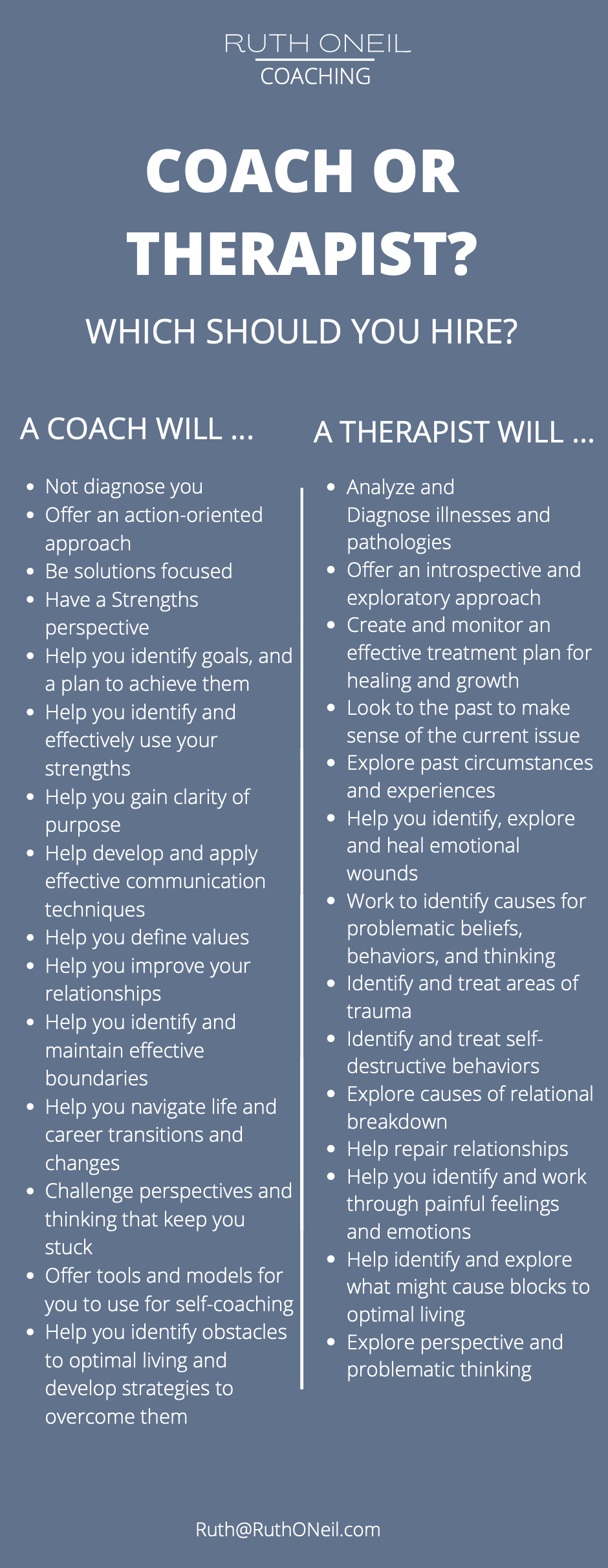Hello Friend!
Today more and more people across the globe are realizing the benefits of working with a coach. You can find a coach for just about everything from writing a book to cancer recovery, or from unlocking the full potential of an executive to reconnecting a mom with her authentic self after a career of raising kids! This increased awareness coupled with the need for a whole person (mind, body, soul) approach to wellness has opened up increased access and more collaborative opportunities for coaching.
The wellness community is moving fast toward a standard that includes the “whole person” approach. Mental wellness, being an essential part of this whole person wellness equation, is an area where coaches are making a unique contribution. Recognizing the potential and opportunity for self-awareness and personal growth, more mental health professionals are partnering with coaches.
With the increased availability of coaching within mental health practices, it’s important to draw the distinction between coaching and therapy.
Although life coaches and therapists occasionally help clients with similar problems, their work is not the same. In order to get the right kind of professional expertise, you’ll need to know which kind of guidance will serve you best. Do you need a therapist, or do life coaching services better suit you? It’s important to remember that life coaching isn’t just a watered-down version of therapy! Rather, it’s a dynamic discipline designed to challenge, motivate and inspire people to achieve more than they ever thought was possible!
Life coaches do not “diagnose” the people they work with. They help their clients identify where they are now, where they want to be, and what current problematic behavior or thinking might be getting in the way of achieving their desired outcome.
Together the coach and client use and action-oriented approach to bridge the gap between where they are and where they want to be. Life coaches use activities, exercises and personalized strategies to help people create practical plans and effective strategies that help define purpose, overcome obstacles, improve relationships, set goals, define values, and navigate the changes and transitions of life
Therapists work to analyze, diagnose and treat illness and pathologies. They use an introspective and exploratory approach to identify and treat problematic beliefs, behaviors, relationship issues, feelings and sometimes physical responses.
Therapists will create and monitor a personalized treatment plan for each client. They will explore past traumas and issues to help make sense out of current issues. They work with the client to discover and change self-destructive habits, problematic thoughts, repair and improve relationships, and work through painful feelings and emotions.
Occasionally both therapists and coaches will help their clients navigate similar problems. However, it is important to recognize that the way each of these professions approach these problems is completely different.
In order to get the right kind of professional expertise, it is crucial to know which kind of guidance will serve you best.
Do you need a therapist, or do life coaching services better suit you? Life coaching isn’t simply a watered-down version of therapy. It is a dynamic discipline, designed to help motivate and inspire people to achieve more than they thought possible.
Need a quick reference tool? I’ve made one for you below!

I hope this was helpful for you! If you have any questions or would like to request a blog topic, always feel free to reach out to me at [email protected]!
One last thing!
In June of this year, I started a monthly newsletter! If you’d like to receive insights directly to your inbox, I invite you to sign up – Issue 3 will be releasing in August!
To subscribe, simply click HERE
Sending you lots of love and blessings,
Ruth

